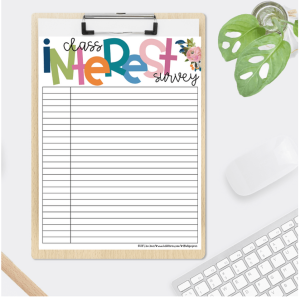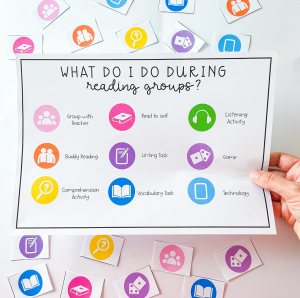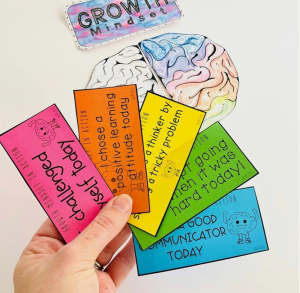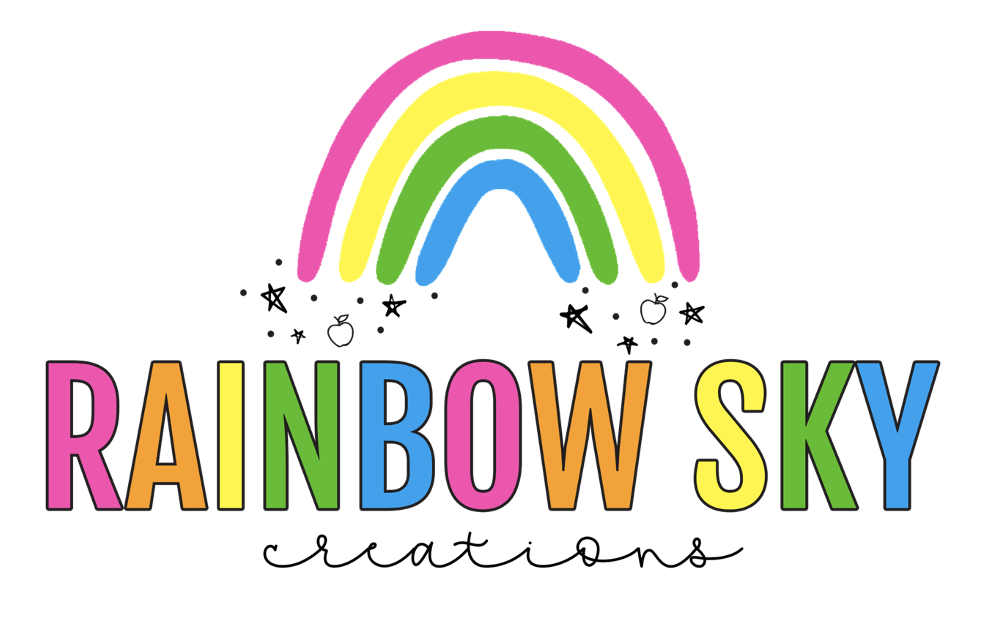Setting up and running Reading Groups isn’t always the easiest of tasks. Especially when it comes to organising activities for each small group that will keep them engaged and successful independent learners.
We often put all this time and effort into planning, which ends up in a hot mess (yep, we have both been there… many times!).
We hear over and over from all the experts that the most important thing when it comes to reading groups is the small group of students sitting in front of you. So how can we make the most of that time?
Look no further if you are struggling with reading groups, especially when planning for the small group working with you!
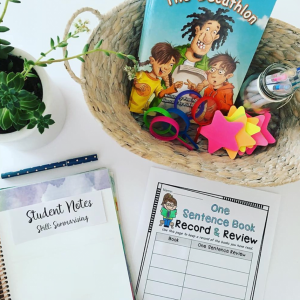
A quick note about the Science of Reading (SoR): Within SoR we don’t typically run ‘Guided Reading’ sessions as we have in the past. Students are grouped based on skill and instead of levelled readers, they read decodables in the early stages. The key steps in this article can use used if you are following the Science of Reading OR traditional guided reading sessions. We know different schools require different approaches from their teachers.
Learn our 8 steps to help you transform and guide your small group reading lessons:
1. Start with Assessment
Assess each student’s reading levels and interests to ensure they are placed in the best group. Sometimes, this can be overwhelming at the beginning of the year. Our time-saver tip is to look at the data from the previous year (if you have access to it) to help you get started.
- Science of Reading – Group according to skill
- Guided Reading – Group according to reading level
Jen Jones (Literacy expert) recommends meeting with students at the beginning of the year and taking an inventory of their interests. This makes it easy to find texts that interest them and encourages engagement.
2. Set Clear Goals
Our students are used to learning intentions, which is just a fancy name for learning goals. Clearly define the purpose and goals of your reading group to help guide and focus discussion and activities. These learning goals can stay the same for a couple of weeks. Ultimately, you want students to progress and move onto a new learning intention.
3. Plan Engaging Tasks
Plan activities to spark students’ curiosity and engage them with the text you’re reading. It doesn’t need to be a production. It might involve prompts, mini magnifying glasses to find text features, magnetic letters or recording on mini whiteboards (we are big fans of providing activities that do not require any marking later on).
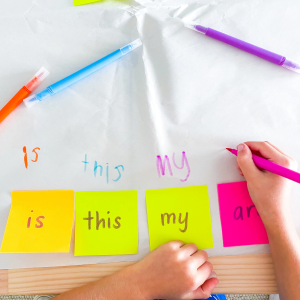
4. Integrate a Growth Mindset
Reading can be a tricky skill for some students to master. Integrate the language of a growth mindset to encourage them that they can grow and stretch their brains. They may not be able to do something…. Yet!
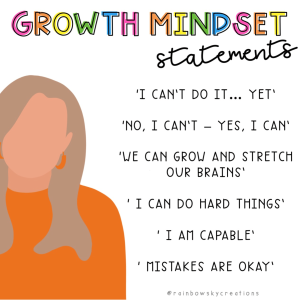
5. Stick to a Routine
We know children respond to routines, and routines are your friend regarding reading.
Try reading with the same small group on the same day each week so they know when to expect to work with you. But, be flexible if there is a change in the timetable one week (because you know it’s going to happen, hello sports carnival or swimming lessons).
Also, set up your reading lessons with the same or similar structure.
(See our bonus tip for another routine idea)
6. Encourage Student-Led Discussions
This is looking at your role as a facilitator in the small group. Encourage students to take ownership of their learning by leading discussions and asking questions. As students get older, if your school does reciprocal reading, starting this skill early will help them when they get to that.
7. Offer Personalised Support
Offer support to students who may struggle with reading or understanding the text. This may seem obvious, but different students will need varied support structures.
In other words, another way you can differentiate and cater for the needs of your students.
8. Celebrate Success
Celebrate the success and progress of each student and the group as a whole. This will contribute to greater confidence and, hopefully, a love for reading.
We are so passionate about celebrating progress and success. It helps our students see that hard work and a growth mindset pays off!
Bonus tip: When your students first come to you, have a familiar book ready for the small group to read. They can read it quietly while you are getting your other groups settled.
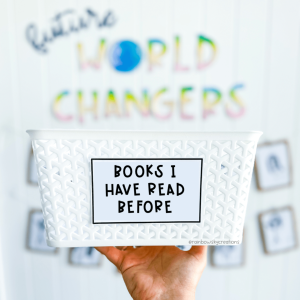
For reading group activity inspo (for your small groups that aren’t working with you), click the links below:
Made it this far and still wish there was a magic stick to help Reading Groups run effortlessly every single day?
WHAT IF YOU COULD MASTER SETTING UP AND RUNNING YOUR READING GROUPS IN JUST ONE WEEK?
Imagine running a reading group program that is uncomplicated, easy to implement and stress free…
Introducing…
TRANSFORM YOUR READING GROUPS
-
Discover a streamlined system to take control of your reading groups.
-
Learn our step-by-step instructions.
-
Create a time in the day you and your students love.
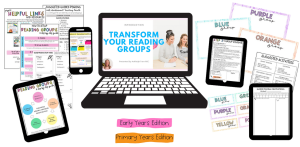
Click here to join us and TRANSFORM YOUR READING GROUPS.
What to read next:
Setting your Reading Group Activities up for Success
Common Mistakes teachers make when running reading groups
Listening to reading ideas + FREEBIE
